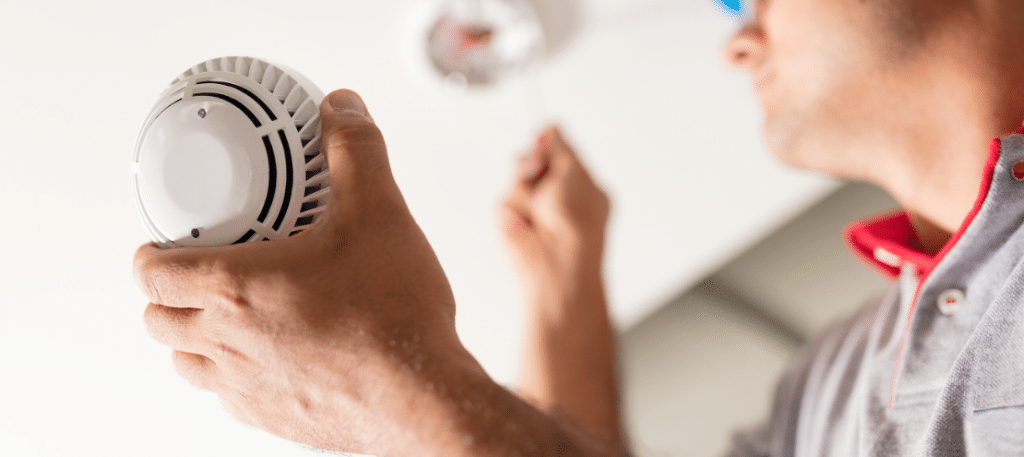In today’s world, where concerns about indoor air quality are on the rise, smokers face unique challenges in maintaining clean air within their homes. Smoking indoors can significantly contribute to the presence of harmful pollutants, which not only affect the immediate environment but also infiltrate HVAC (Heating, Ventilation, and Air Conditioning) systems, compromising their efficiency and overall air quality. However, with the implementation of proper maintenance strategies, smokers can take proactive steps to mitigate these effects and ensure a healthier indoor environment for themselves and their families.
Understanding the Impact of Smoking on Indoor Air Quality

Smoking indoors releases a plethora of harmful pollutants into the air, including particulate matter, carbon monoxide, and volatile organic compounds (VOCs). These pollutants not only pose immediate health risks to occupants but also have long-term implications for indoor air quality. Unlike outdoor environments where smoke can dissipate more easily, indoor spaces trap smoke particles, allowing them to accumulate over time. Consequently, these pollutants can infiltrate HVAC systems, coating components such as filters, ducts, and coils with a layer of residue. This buildup not only compromises the system’s efficiency but also recirculates contaminants throughout the indoor environment, further exacerbating air quality issues.
The Importance of HVAC Maintenance for Smokers
Regular maintenance of HVAC systems is paramount for smokers to uphold indoor air quality and ensure the optimal performance of their systems. Neglecting maintenance can lead to the accumulation of smoke residues and other pollutants within the system, resulting in reduced airflow, decreased efficiency, and heightened health risks for occupants. By implementing a proactive maintenance routine, smokers can mitigate these risks and prolong the lifespan of their HVAC systems.

Effective Maintenance Practices for Smokers
- Frequent Filter Replacement: Smokers should replace HVAC filters more frequently than non-smokers to prevent the buildup of smoke particles and other contaminants. Standard filters may become clogged quickly due to the high volume of pollutants present in the air, leading to reduced airflow and decreased system efficiency. Therefore, opting for high-efficiency particulate air (HEPA) filters or electrostatic filters can help capture smaller particles and improve overall air quality.
- Regular Cleaning: Routine cleaning of air vents, ducts, and other HVAC components is essential for removing accumulated smoke residues and maintaining optimal airflow. Smokers should inspect and clean these areas regularly to prevent the buildup of contaminants and ensure the efficient operation of their systems. Additionally, scheduling professional duct cleaning services can help eliminate stubborn residues and improve indoor air quality.
- Professional Inspection: Scheduled inspections by HVAC professionals are critical for identifying and addressing any issues with the system promptly. These professionals can assess the condition of HVAC components, detect potential problems, and recommend necessary repairs or upgrades to enhance system performance. By investing in regular maintenance services, smokers can ensure that their HVAC systems operate efficiently and effectively, thereby improving indoor air quality and minimizing health risks associated with smoking.
Investing in Air Purification Systems
In addition to regular maintenance practices, smokers can further enhance indoor air quality by investing in air purification systems. These devices are designed to capture and remove airborne pollutants, including smoke particles, VOCs, and other contaminants, thereby reducing the overall burden on HVAC systems and improving indoor air quality. There are various types of air purification technologies available, such as mechanical filtration, ionization, and UV-C sterilization, each offering unique benefits in terms of pollutant removal and system compatibility. By incorporating air purification systems into their homes, smokers can create a healthier indoor environment for themselves and their families, mitigating the adverse effects of smoking on indoor air quality.

Conclusion
In conclusion, maintaining HVAC systems is essential for smokers to uphold indoor air quality and minimize the adverse effects of smoking on their health and well-being. By implementing effective maintenance practices, such as frequent filter replacement, regular cleaning, and professional inspections, smokers can ensure the efficient operation of their systems and reduce the buildup of harmful contaminants. Additionally, investing in air purification systems can further enhance indoor air quality by capturing and removing airborne pollutants, thereby creating a safer and healthier environment for occupants. By taking proactive steps to care for their HVAC systems, smokers can enjoy improved indoor air quality and peace of mind knowing that they are minimizing the risks associated with smoking.






GIPHY App Key not set. Please check settings